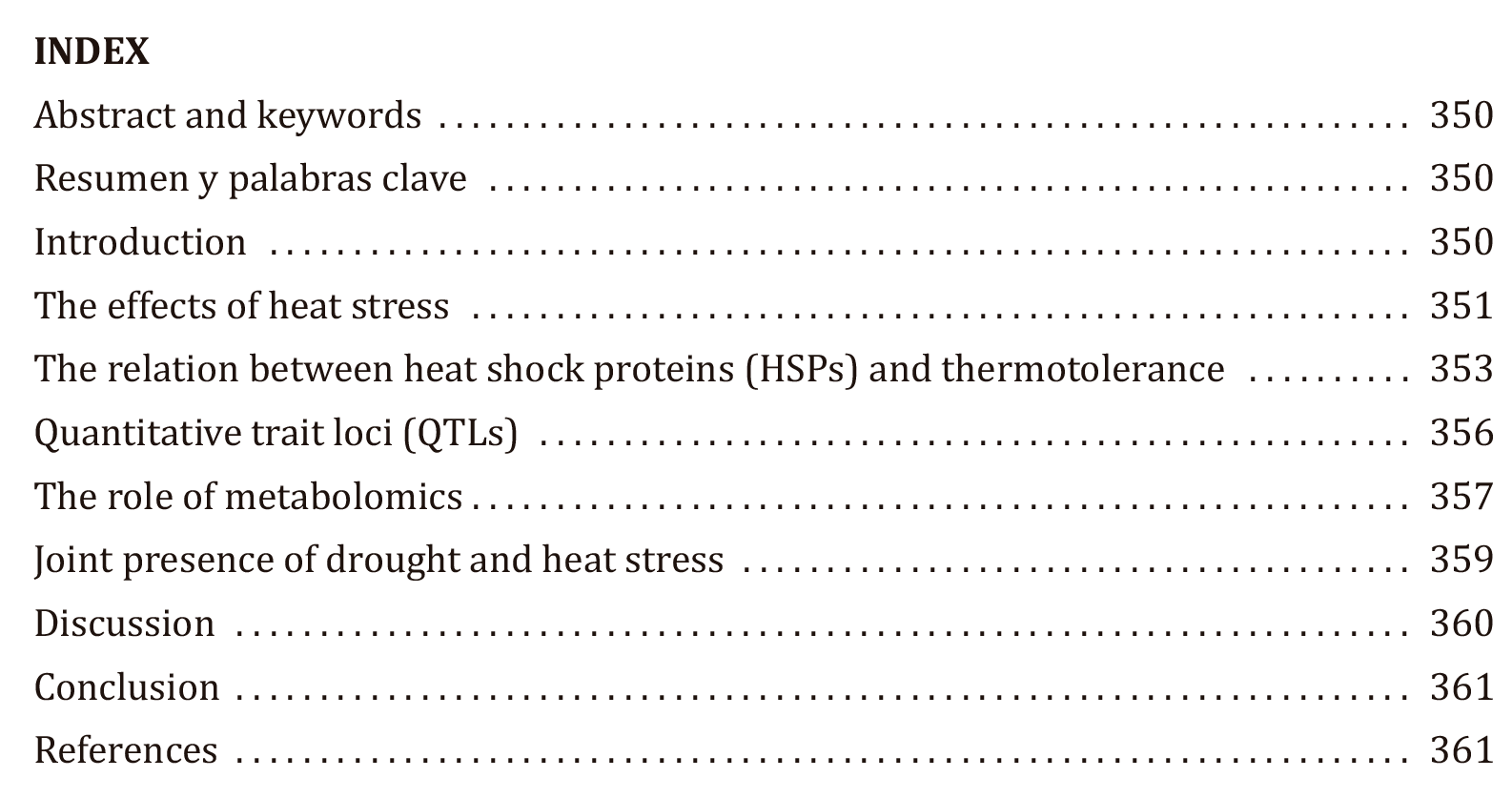Heat stress effects on crop performance and tools for tolerance breeding
Keywords:
heat stress, heat shock proteins (HSPs), lipid peroxidation, quantitative trait loci (QTLs), metabolomics (OMICS), antioxidant enzymesAbstract
Abiotic stress is one of the most common causes of crop deficit and loss and hence an important area of study. Moreover, concerns regarding global climate change over past decades mean the study of different abiotic stresses appears to be essential if its effects are to be mitigated. The current review covers the effects of heat stress on crop performance, the response crops make when subjected to this stress and the development of tools designed to breed for stress tolerant crops. Distinct levels of the problem are considered, from the morphological/anatomical, through the physiological and to the biochemical/molecular. The study of heat shock proteins (HSPs), quantitative trait loci (QTLs) identification and the relationship between metabolomics (OMICS) and heat stress are given special consideration.

Downloads
Published
Issue
Section
License

This work is licensed under a Creative Commons Attribution-NonCommercial-ShareAlike 3.0 Unported License.
Aquellos autores/as que tengan publicaciones con esta revista, aceptan las Políticas Editoriales.


